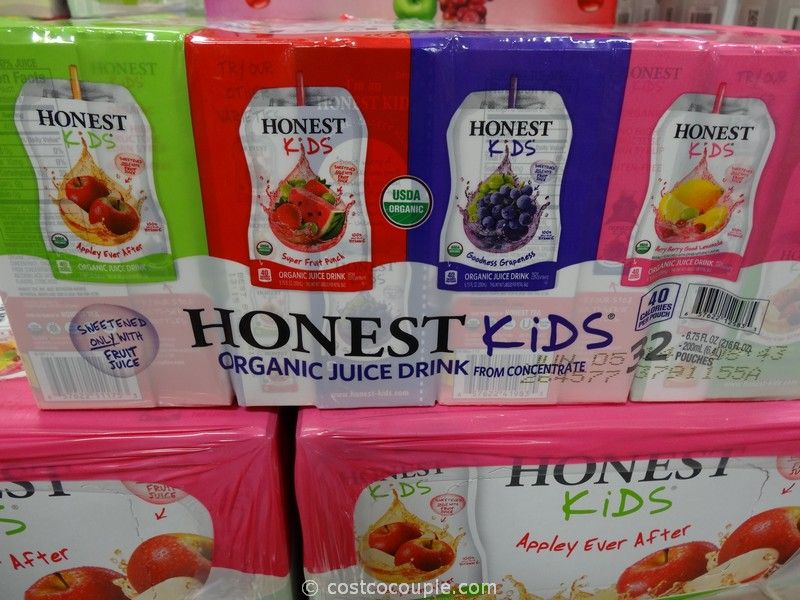
The American Academy of Pediatrics says parents should avoid giving children younger than 1 year old any fruit juice. What does this mean for you and your children? This has been achieved by careful sourcing and the fact that they “ now purify the water used in its juices through reverse osmosis, a method that can reduce, though not eliminate, certain heavy metals.” As Consumer Reports reports, Gerber was able to reduce their inorganic arsenic level by 79 percent since 2011, and its lead level dropped by 97 percent. When a fruit or vegetable grows in soil that contains these heavy metals they too grow with some level of these contaminants.Ĭertified organic produce does not treat for heavy metals which is why organic fruits and vegetables can contain heavy metals too.Ĭompanies, however, can reduce heavy metals in juice- and they have. Often, these metals enter the food supply through pollution, mining, pesticides, or other human activities Naturally occurring elements such as lead and arsenic can be present in the soil, air, and water. The American Academy of Pediatrics says that the limit for lead should be 1 ppb There are guidelines set by the FDA for lead in juice, but it is 50 ppb much higher than limits for bottled water which has a limit of 5 ppb. The FDA previously told CR that limit would be set by the end of 2018. Back in 2013 when CR found arsenic in grape and apple juice, the Food and Drug Administration proposed limiting inorganic arsenic in apple juice to 10 parts per billion (ppb), the federal arsenic standard for drinking water. While our drinking water has limits on how much heavy metals can be present, there are no standards that limit some heavy metals like arsenic and cadmium in fruit juice. Why do these juices contain heavy metals?

In fact, in some juices the heavy metal levels left little to no room for exposure from other sources, such as drinking water, food, and air” This is quite probably happening to many children since may common children's foods actually contain arsenic and other heavy metals We know that heavy metals have also been found in infant and toddler foods, rice and rice products, protein powder, some types of fish, and sweet potatoes.Īs Consumer Reports scientists put it “ The amounts of heavy metals in any one type of food may be low, but because heavy metals are found in other foods and the environment-and because they tend to accumulate in the body-small amounts can add up. Of special concern is the cumulative effects that a child might have when exposed to low levels of different heavy metals, through various sources. Heavy metals have been linked to lowered IQ, behavioral problems (such as attention deficit hyperactivity disorder), heart disease, type 2 diabetes, fertility problems, kidney disease and cancer, among other health issues. Even low levels of exposure to neurotoxins can affect young children. The heavy metals found in these fruit juices - which included lead, cadmium and arsenic are all neurotoxins. Trader Joe’s Fresh Pressed Apple Juice had three samples that tested highest at an average of 15.4 ppb for inorganic arsenic, Organic juices did not have lower levels of heavy metals than conventional ones Grape juice and juice blends had the highest average heavy metal levels.

Seven tested juices could harm children who drink just 4 ounces (½ cup) or more a day nine of them pose risks to kids at 8 ounces (1 cup) or more a day. (47 percent) of the juices had concerning levels of cadmium, inorganic arsenic, and/or lead Levels were elevated enough that “ “In some cases, drinking just 4 ounces a day-or half a cup-is enough to raise concern,” says James Dickerson, Ph.D., CR’s chief scientific officer.

Juices tested included: apple, grape, pear, and fruit blends-Īlmost half had “ elevated levels of heavy metals” Now, a new study by Consumer Reports has once again tested fruit juices and found many popular brands containing potentially harmful levels of arsenic, cadmium, and lead.Ĭonsumer Reports tested over 45 juices, most of them specifically marketed towards children What many parents don't realize is that fruit juice, in the past, has been found to be a source of arsenic - a harmful heavy metal. Did you know that fruit juice is not really healthy? Parents that know this usually cite the fact that it is packed with sugar and has been linked to the increasing obesity crisis in the US. Do your kids drink fruit juice? If you do you are not alone the great majority of parents in the US still give their children, ages three and under, fruit juices at least once a day.


 0 kommentar(er)
0 kommentar(er)
